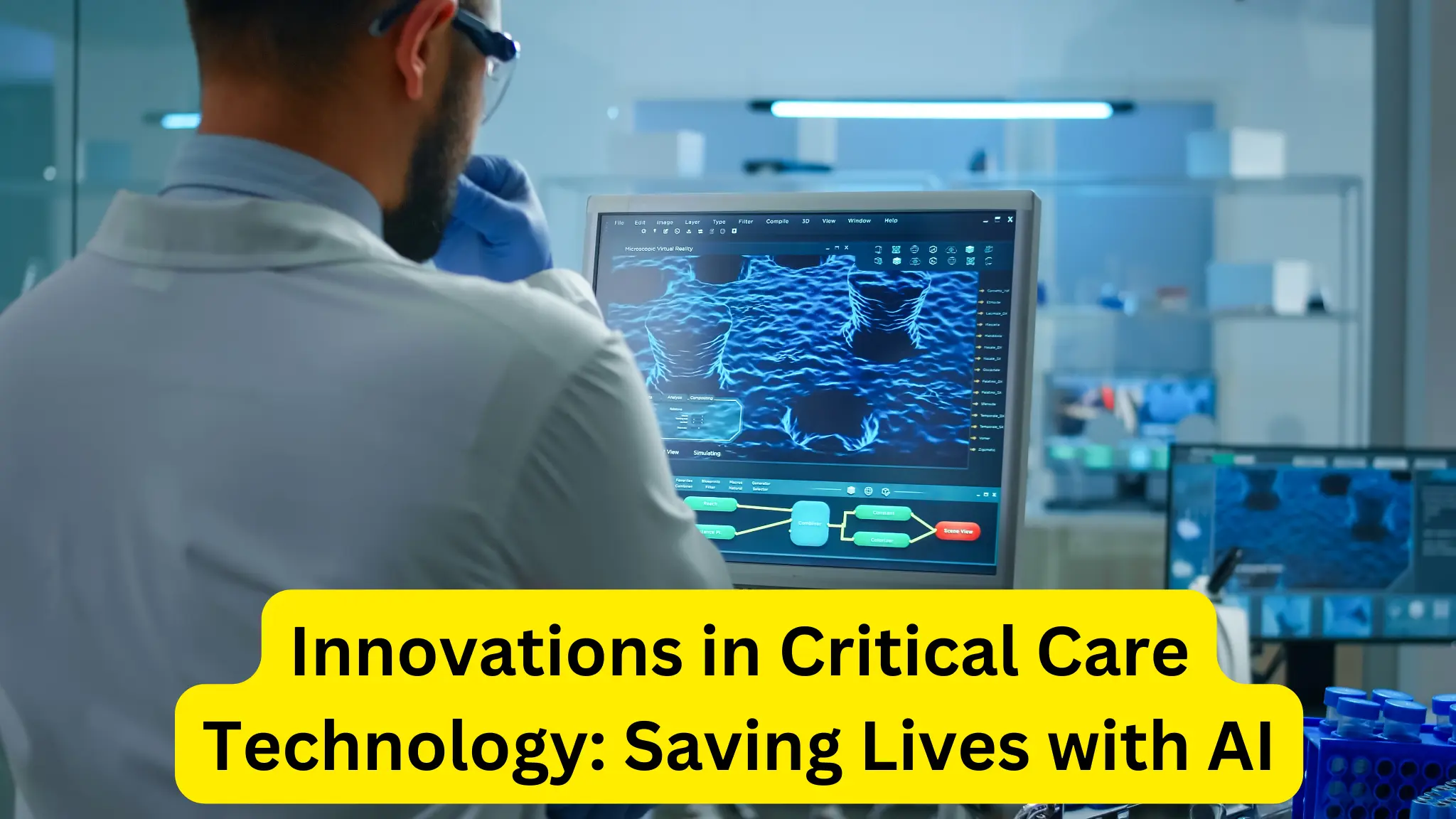In the ever-evolving landscape of healthcare, technological advancements are revolutionizing critical care. One of the most significant breakthroughs in recent years has been the integration of Artificial Intelligence (AI) into critical care settings. AI-powered solutions are proving to be game-changers, enhancing patient outcomes and streamlining medical processes.
In this blog post, we will explore the step-by-step journey of how AI is transforming critical care, from diagnosis to treatment and beyond.
Diagnosis: The AI-Powered First Step
Data Collection and Analysis
The foundation of AI in critical care lies in its ability to process vast amounts of patient data swiftly and accurately. Electronic Health Records (EHRs), vital signs, lab results, and medical imaging can all be analyzed by AI algorithms in real-time. This data-driven approach ensures that no critical information is overlooked, allowing healthcare providers to make more informed decisions.
Predictive Analytics
AI excels at predicting adverse events. By analyzing historical patient data and continuously monitoring vital signs, AI can forecast complications such as sepsis, cardiac arrest, or respiratory failure. This early warning system empowers healthcare teams to intervene promptly, potentially saving lives and reducing hospital stays.
Treatment: Tailored and Timely Interventions
Personalized Treatment Plans
Every patient is unique, and AI recognizes that. With machine learning algorithms, critical care providers can create personalized treatment plans. AI considers patient history, genetic factors, and real-time data to suggest the most effective interventions. This tailored approach not only improves patient outcomes but also minimizes adverse reactions to treatments.
Medication Management
Administering the correct medications and dosages is critical in critical care units. AI plays a pivotal role in preventing medication errors. It can cross-reference patient allergies, drug interactions, and individual response patterns to ensure that the right medication is given at the right time.
Monitoring: Continuous Vigilance
Remote Monitoring
AI has extended its reach beyond the confines of the hospital. Remote monitoring solutions powered by AI enable healthcare providers to keep an eye on critical care patients even after they leave the intensive care unit. This technology ensures that patients receive prompt attention if any alarming changes occur.
Sleep and Sedation Management
Patients in critical care often require sedation and mechanical ventilation. AI algorithms monitor sedation levels and can adjust them to keep patients comfortable while minimizing the risks associated with over-sedation. Additionally, AI can monitor sleep patterns, which are crucial for recovery, and suggest adjustments to improve the quality of rest.
Recovery: Post-Critical Care Support
Rehabilitation Plans
AI’s capabilities extend beyond the hospital stay. For patients recovering from critical illnesses or surgeries, AI can generate rehabilitation plans. These plans consider the patient’s progress, pain levels, and physical condition, ensuring that rehabilitation is both effective and safe.
Predicting Long-Term Outcomes
AI can analyze a patient’s data to predict long-term outcomes, including the risk of complications or readmissions. This information allows healthcare providers to proactively address potential issues and provide appropriate post-critical care support.
Ethical Considerations
While AI in critical care has shown remarkable promise, it also raises ethical concerns. Patient data security, algorithm transparency, and decision accountability are just a few of the complex issues that need careful consideration.
Conclusion
Innovations in critical care technology, fueled by AI, are revolutionizing patient care at Baramati’s Deshpande Hospital. From precise diagnosis and tailored pain management treatments under the expertise of Dr. Kalpana Deshpande, critical care doctors in Baramati now harness AI’s power to make informed decisions.
This dynamic integration, spanning diagnosis to recovery, empowers healthcare providers to enhance patient outcomes at Deshpande Hospital. As AI evolves, we anticipate even more remarkable advancements, cementing the future of critical care. With cutting-edge technology and the expertise of Dr. Kalpana Deshpande, Deshpande Hospital stands at the forefront of critical care innovation, saving lives through the incredible potential of artificial intelligence.

